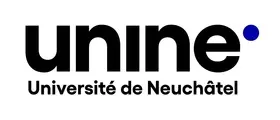
Academizing During Your First Academic Conference
Read a summary using the INOMICS AI tool
There was a certain naiveté in the air when I went to my first academic conference. I thought that all I would have to do is to write a decent paper and to present it to the public. In retrospect this could have ended badly and I wish someone had intercepted me on the way to the airport and given me some key-warnings to know in advance. Thus, after this multifaceted experience, I thought to write the following points in a humble and only half-serious manner.
An academic conference is where scientists and other mostly sun-deprived* human beings dare to get out of their heavily neglected* workspaces in order to academize (*Regressions for these claims will soon be presented by Ruiz et al. under α<0.05 statistical significance). The goal is primarily to present your scientific results to a broad audience – beyond the usual four suspects, who will read your paper anyway – and to know the latest state of research: it wouldn’t be very funny if you invest a lot of time in writing a paper just to find out that someone just published the same thing, right?
A: Preparation before the Conference
- Know your Discussant
The panels usually consist of a few panelists (you?), a moderator, a discussant and a cheering audience. The discussant is supposed to have read all the presented papers and comments on all of the academic contributions after the presentations. This is very nice because you usually get a detailed and valuable feedback from an expert in your field. But, beware, there might also be some tough questions e.g. about your beloved methodology. It might pay to know the background of your discussant as he/she might be personally more interested in one aspect of your research.
- Don’t get Lost
You should know university campuses by now: they tend to be big. So inform yourself in advance, where exactly you have to go. Might sound logical but sometimes university campuses are spread over a city or even way outside the city-walls. The chance that academics get helplessly lost seems to be significantly higher than for other control-groups.
- In the Beginning there was an Abstract
Writing an abstract is an art in itself. But it seems that there is an inherent danger to promise too much for an upcoming research project and the subsequent paper. The Audience and the organizers have expectations! Summarizing the current state of research can without doubt be helpful for getting an overview of an unknown field – but it gets really interesting if the borders of science are expanded.
- Care for your Health
Be prepared that provided food could consist of sandwiches and coffee only.
B: During the Presentation
- The Questions are your Best Friends
There are only good questions at an academic conference – almost. But do you have an equally qualitative answer? The input from the audience and the emerging academic conversations can bring your academic thinking light-years ahead.
- Stick to your Time
Please. Nothing is more annoying that taking time of all the participants – public and panel alike. Be disciplined enough to not have the Chairwoman/Chairman open the toolbox of torture (ranging from pieces of paper with big remaining minute-numbers on it; aesthetic sounding bells or ring-tones; to just cutting off your microphone).
- Find your Presentation Style
There are maybe as many ways to present as there are presenters: Some are rather shy and others like to literally jump up and down. I do not see anything wrong in personalizing your academic stringent content – as long as you communicate your key-messages clearly to your audience.
- Expect Social Interaction.
Particularly, if your topic overlaps with the ones of other participant’s.
C: Outside of the Presentation-Room
- Relativity-Theory
The further you move away from the presentation room, the less people get interested in correlation coefficients to three digits after the coma. In particular, the so-called Einstein-Sandwich-Line marks the area where coffee-smell starts and hungry participants are less receptive for your latest research findings.
- High-level Guests are not Oracles
It is a particular privilege at some conferences to listen to the invited high-level guests and even to be able to ask questions. However, keep in mind, that on the one hand too detailed, and on the other hand too political questions, are going to be answered in the same way: not satisfying for you. So ask instead something, where you think he/she has some realistic room to react, maybe to improvise, to elaborate and in the best case even to share his/her personal experience.
- Musical Chairs
In the case that there is a dinner event, be fast at choosing your table when the seating is not set yet. This is a great opportunity to talk to someone you wouldn’t catch in your real life. Alternatively, to spend 3 hours hearing about new methods of measuring heteroscedasticity. Your choice.
- Pronunciation and Comprehension
These are always issues in international environments with many non-native English speakers. In case someone tells you that he did not catch part of your phrase, it helps to rephrase your sentence differently instead of repeating the exact same sentence with the same tonality all over again. Beg your pardon? It helps to rephrase your sentence differently… Sorry, I didn’t catch you. IT HELPS TO REPHRASE…
If the above tips didn’t help at all: just try to do everything in the exact opposite way that I did, and you should be fine. Happy academizing!
Photo Credit: hikingartist.com
-
- Postdoc Job
- Posted 2 weeks ago
Research Associate (Post-doc, f/m) in the fields of applied econometric and distributional analysis
At LISER (Luxembourg Institute of Socio-Economic Research) in Esch-sur-Alzette, Luxemburgo
-
- Postdoc Job
- Posted 1 week ago
Postdoctoral Research Fellow Opportunity
At University of Notre Dame in Notre Dame, Estados Unidos
-
- Conferencia
- Posted 3 weeks ago
Industrial Policies in a Globalized and Financialized World
Between 7 May and 8 May











